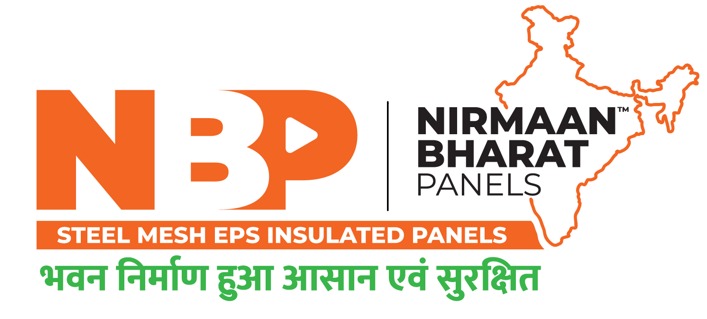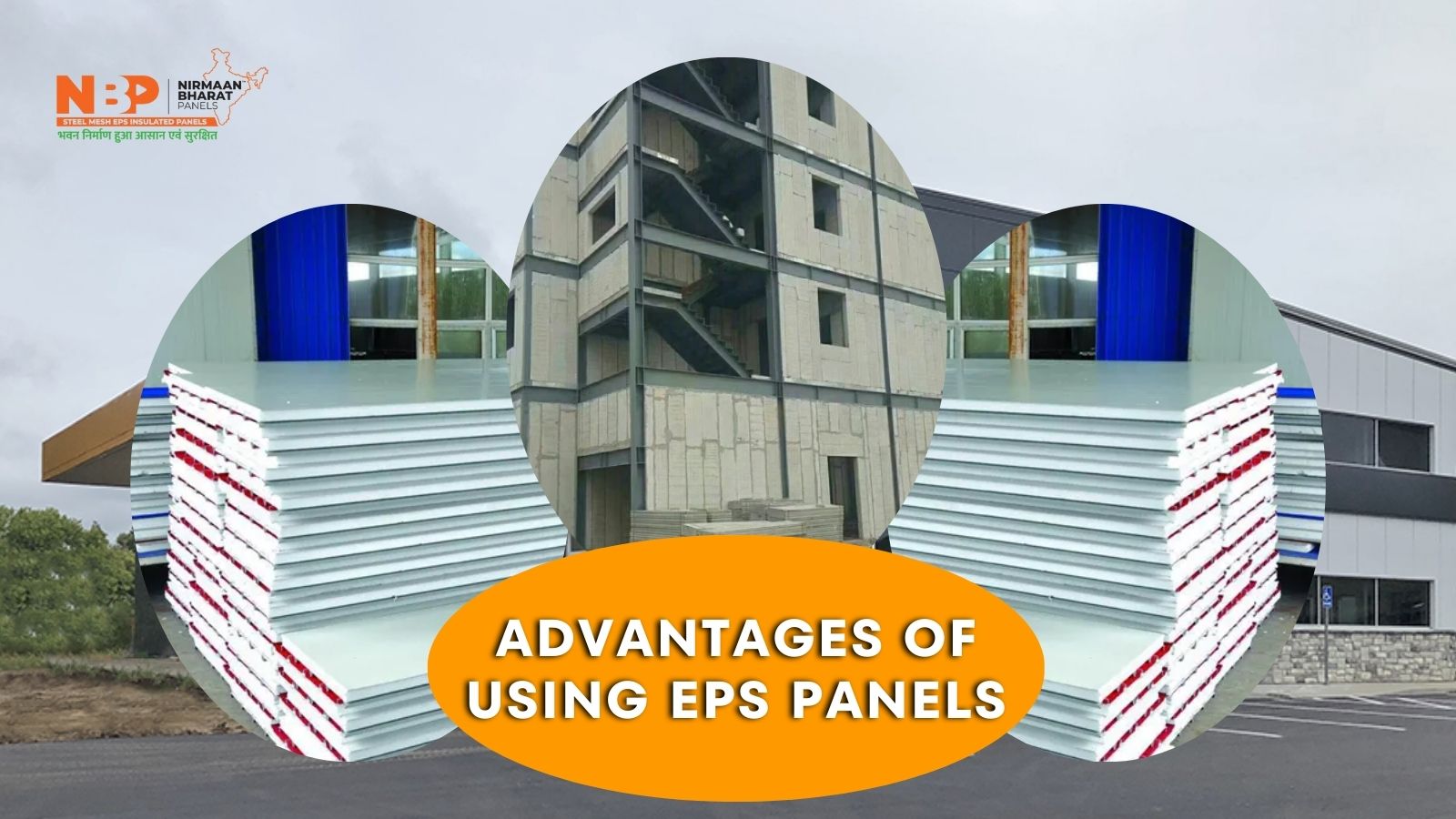In the evolving landscape of commercial construction, building materials and methods are continually improving to meet the demands of sustainability, cost-efficiency, and speed. Expanded Polystyrene (EPS) panels have emerged as one of the most innovative solutions for these needs. Known for their lightweight structure, thermal insulation, and versatility, EPS panels are rapidly gaining popularity in commercial construction. Whether it’s creating energy-efficient buildings or reducing labour costs, the advantages of EPS panels are numerous. This blog will explore the benefits of using EPS panels in commercial construction and explain why they are becoming an integral part of modern building projects.
Table of Contents
ToggleWhat Are EPS Panels?
EPS panels, or Expanded Polystyrene panels, are a form of rigid insulation material widely used in the construction industry. EPS panels consist of polystyrene foam sandwiched between two layers of material, typically cement or other sturdy coverings. They are commonly used in building walls, roofs, and flooring systems.
EPS panel construction offers superior insulation, and structural integrity, and is ideal for both residential and commercial applications. Moreover, they can be customized in various sizes and thicknesses, making them versatile for different building needs.
1. Thermal Insulation and Energy Efficiency
One of the most significant advantages of EPS panel construction is its excellent thermal insulation properties. EPS panels have low thermal conductivity, meaning they prevent heat from escaping in the winter and entering in the summer. This results in lower energy consumption for heating and cooling systems, making commercial buildings more energy-efficient.
For businesses, this translates to reduced energy costs, which is particularly important in large commercial spaces where heating and cooling expenses can be substantial. EPS cement sandwich panels, with their added layers of cement, enhance the thermal insulation further while providing additional strength and durability to the structure.
2. Lightweight and Easy to Install
EPS panels are incredibly lightweight compared to traditional construction materials like brick and concrete. This characteristic makes them easy to handle and transport, reducing logistical challenges and associated costs. EPS panels are also simpler to install, which significantly shortens construction timelines. In commercial construction, time is money, and quicker installation means lower labour costs and faster project completion.
In India, where commercial construction is booming, EPS wall panels are becoming a popular choice for contractors looking to reduce the time and labour involved in building projects. With EPS wall panels India seeing increased demand, many developers are recognizing the value of a material that allows for quicker construction without compromising on quality.
3. Cost-Effective Construction
Using EPS panels in commercial construction offers a cost-effective solution in multiple ways. Firstly, the panels themselves are affordable, especially compared to traditional building materials. Secondly, as mentioned earlier, EPS panels reduce labour costs due to their ease of installation. Contractors can complete projects faster and with fewer workers, translating to significant savings.
Additionally, buildings made with EPS panels benefit from long-term savings in energy bills thanks to their superior thermal insulation properties. Over time, the initial investment in EPS panels pays off, making them an economically sound choice for commercial construction projects.
4. Sound Insulation
Another advantage of EPS panels is their ability to provide excellent sound insulation. Commercial buildings often require soundproofing, especially in urban areas where noise pollution is a concern. EPS panels help reduce the transmission of sound between rooms and from outside, creating a quieter and more pleasant environment.
EPS cement sandwich panels, with their additional layers, further enhance soundproofing, making them an ideal solution for office buildings, hotels, and other commercial spaces where peace and quiet are essential.
5. Structural Integrity and Strength
Despite their lightweight nature, EPS panels offer impressive structural integrity. The combination of polystyrene foam and outer layers of cement or other materials creates a strong, durable building component. EPS panels can withstand high loads, making them suitable for a wide range of commercial construction applications.
In particular, EPS cement sandwich panels are known for their strength and durability. These panels are designed to resist damage from weather conditions, fire, and even seismic activity, providing commercial buildings with a long-lasting and reliable structure.
6. Fire Resistance
Safety is a top priority in commercial construction, and EPS panels offer excellent fire resistance. The panels are treated with flame-retardant chemicals, which significantly reduces their flammability. In the event of a fire, EPS panels do not contribute to the spread of flames, providing an additional layer of protection for the building and its occupants.
EPS cement sandwich panels, due to their cement layers, offer even higher levels of fire resistance. This makes them an excellent choice for commercial buildings, where fire safety regulations are often strict.
7. Environmentally Friendly
Sustainability is a growing concern in the construction industry, and EPS panel construction offers a more environmentally friendly alternative to traditional materials. EPS panels are recyclable, and their production requires less energy compared to other building materials. Additionally, the energy savings from using EPS panels for thermal insulation further reduce the carbon footprint of commercial buildings.
In India, where environmental concerns are becoming increasingly important in construction, EPS wall panels are gaining recognition for their eco-friendly benefits. The use of EPS wall panels in India aligns with global trends toward greener building practices, contributing to more sustainable development.
8. Versatility in Design
EPS panels offer tremendous versatility in design. They can be customized to suit a variety of building styles and requirements. Whether it’s curved walls, specific thicknesses, or unique architectural designs, EPS panels can be adapted to fit the needs of any commercial construction project.
Furthermore, EPS cement sandwich panels can be used in both structural and non-structural applications, including walls, roofs, and flooring. Their adaptability makes them a go-to option for architects and builders looking for flexible yet reliable building materials.
9. Resistant to Moisture and Weather Conditions
In commercial construction, moisture resistance is crucial, especially in areas prone to high humidity or rainfall. EPS panels are naturally resistant to moisture, preventing water infiltration and reducing the risk of mould growth. This quality ensures that buildings made with EPS panels remain structurally sound and require less maintenance over time.
EPS cement sandwich panels, with their added cement layers, provide even better resistance to moisture and harsh weather conditions. Whether dealing with heavy rain, strong winds, or temperature fluctuations, these panels offer long-lasting protection for commercial structures.
10. Seismic Performance
In regions prone to earthquakes, such as parts of India, seismic performance is a critical factor in construction. EPS panels, despite their lightweight nature, have excellent seismic resistance due to their flexibility and structural integrity. They can absorb and dissipate energy during an earthquake, reducing the likelihood of structural damage.
EPS wall panels India are increasingly used in commercial construction projects located in earthquake-prone areas, providing a safer and more resilient building solution.
Conclusion
The advantages of using EPS panels in commercial construction are clear. From thermal insulation and energy efficiency to cost savings and structural integrity, EPS panels offer a wide range of benefits that make them an ideal choice for modern building projects. EPS cement sandwich panels and EPS wall panels in India are becoming increasingly popular due to their versatility, strength, and environmental benefits.
As the construction industry continues to evolve, EPS panel construction is paving the way for more efficient, durable, and sustainable buildings. Whether you’re a contractor, architect, or developer, incorporating EPS panels into your commercial construction projects is a smart investment that will deliver long-term value.


